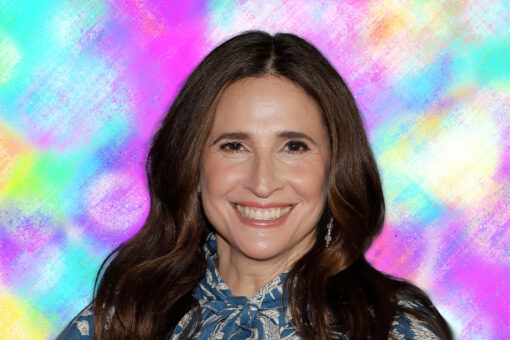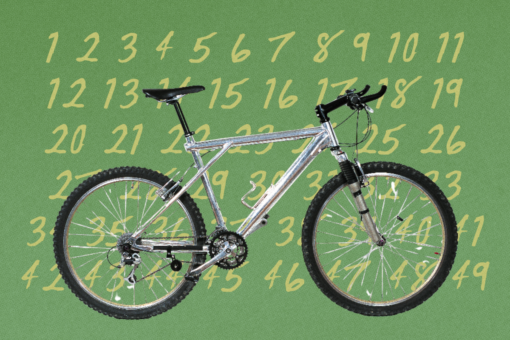They always say it kindly, politely.
“Oh, you’re Jewish?”
“I didn’t realize you were Jewish.”
“Really? You don’t look Jewish.”
They never mean to, but each time they say it, I feel the weight of my red hair, the width of each freckle on my pale skin. I have to defend my DNA, upending and contradicting them. I peel apart the double helixes: my father’s blood deeply rooted in North Carolina’s soil, the Scottish highlands, and the dreary English winters. Yes, they see my Presbyterian grandfather’s eyes staring back at them.
I joke darkly with friends. “Do I need to look like Anne Frank to look Jewish?” Ask enough people what Jews look like and they start to paint the same picture. It’s Barbra Streisand and Woody Allen. It’s Larry David’s humor and the overbearing mother. It’s a recreation of the shtetl and a fiddler on a roof. It’s a corner of the Jewish world that erases the Mizrahi, Sephardim, and the converts. It’s a simple reduction that erases me.
And yet, there is an inherited and familial part of our faith. My mother’s DNA is 99% Ashkenazi, a walled community embedded in her bones. Denying the group ignores our founding stories in Abraham and Isaac, Jacob and his 12 sons. It ignores the idea of our covenant as a people with God, that must be passed down, generation to generation.
But there is the tension, a tightrope we try to walk. We are of a kind, yes, but we’ve always been more than kin. We slip out of easily traceable genetic threads. My body is one example of our new normal, the lines blurring again.
And so many of us seek out simpler ideas to reassure ourselves, like the objective veneer in DNA testing. When my family did the tests, my brother joked that he was more Jewish than me. In that moment I felt as though my own bones had betrayed me. Percentages are quantifiable, measurable in a way community rarely is.
When people are surprised at my Jewishness, it’s usually innocuous. But our assumptions are a little too similar to the old Nazi imagery finding new life on Twitter. If there’s a Jewish “look,” then aren’t there Jewish genes? And if there are Jewish genes, well… it sounds too much like history. Richard Spencer may be well dressed for 2018. It doesn’t change his dark call for a “peaceful ethnic cleansing”. I don’t need to look Jewish to be afraid of this logic.
Of course, not looking Jewish is a privilege, an ability to pass as something else. I won’t lie to you: I’ve done it before. It was 2006, and I was about to go to France. I can still see my rabbi’s office, her bookshelves filled with Talmud and Tanakh. Inundated in this history she unfurled a new part of it, telling me to leave the Jewish jewelry at home. Tuck that part of you away. You’ll be alright as just an American girl. You’ll come back if you’re just an American girl.
So, I was a good girl, the shema tucked deeply under my tongue. I visited cathedrals and medieval castles. How many other Jews had hidden in plain sight, inside these walls? None of those stories were in the pamphlets.
Today’s America — Trump’s America — isn’t a radical departure but a ruder version of ourselves. It brings up old questions in a new way. It asks for simple narratives, of us, of immigrants, of gender norms. It wants the old lies to become new truths. It wants us to fit into the stereotypes, the easy ones that can live in movies and television. It asks for black and white boundaries. It doesn’t want the complicated answers inside me, or anyone else.
Yes, I could pass in Trump’s America. I don’t fault anyone who does. But I don’t want to pass, not anymore. If I pass, the old lies live on and keep erasing our nuances. It is a safety that can kill, because it lets bigotry live.
Today, embracing my Jewishness is a small part of my resistance. My story is a witness to successful interfaith marriages and Jewish homes. In my childhood are a series of Jewish choices: Shabbat dinners, Sunday school classes, a Jewish life. Each time my long red hair and freckles are seen as Jewish, I break the stereotypes a bit further.
Look at me. See both the English roots and the Jewish survival. Watch my hands read Torah. Watch me light the Hanukkah candles before Christmas dinner with my father’s family. Listen as I wish my aunt Happy Easter while I shop for matzah. Do you hear the glass breaking? This is a joyous moment, upending not history, but our limited imagination, making space for my golden hair and freckled skin to thrive in our Jewish tapestry.
Header image by Tuttotonno.



